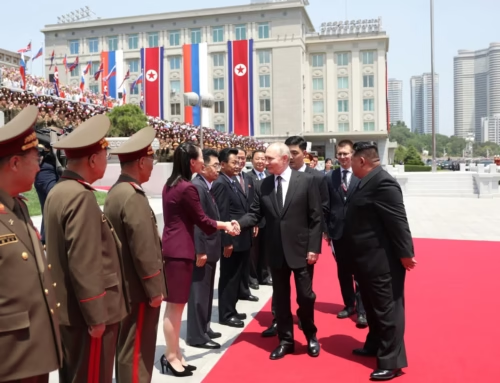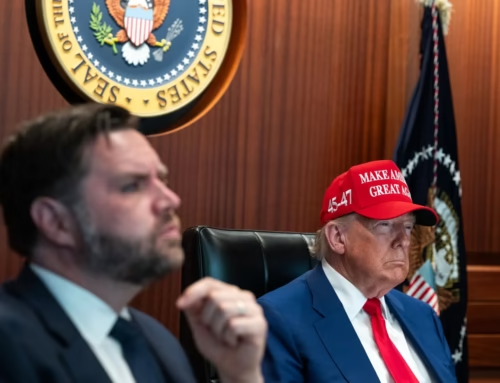Untitled
Autor foto: CPF

The Election Year: U.S. Policy and a New Geopolitics of the Black Sea
October 22, 2024
Author: Ketevan Chincharadze




Untitled
Autor foto: CPF
The Election Year: U.S. Policy and a New Geopolitics of the Black Sea
Author: Ketevan Chincharadze
Published: October 22, 2024
Pulaski Policy Paper, no. 10, 22nd October 2024
With the upcoming 2024 U.S. elections, the next administration faces a crucial opportunity to reshape American foreign policy in the Black Sea region, countering both Russian aggression and China’s growing influence in this strategically important area.
The Black Sea Region (BSR), situated between Europe and Asia and encompassing countries such as Georgia, Ukraine, Moldova, Romania, Turkey, and Russia, has emerged as a major geopolitical battleground between Russia and the West. This region faces significant security challenges influenced by historical conflicts, Russian disinformation campaigns, and hybrid threats. In the 21st century, Europe has witnessed three major conflicts in the BSR—the Russo-Georgian War in 2008, Russia’s annexation of Crimea in 2014, and Russia’s ongoing invasion of Ukraine since 2022. China has also expanded its presence in the region, largely due to the Middle Corridor, a more efficient trade route between Europe and China, and the Anaklia deep-sea port in Georgia. Despite these trends, the U.S. has yet to establish a strategy for the BSR.
With the 2024 presidential elections in the United States, the incoming administration will have an opportunity to formulate a comprehensive Black Sea security strategy, enabling the U.S. to develop a unified approach to counteract Russian hostility and address China’s expanding presence. This policy paper analyzes diverse perspectives of the U.S. presidential candidates, evaluates their foreign policy priorities regarding the BSR, and offers policy recommendations to address the region’s geopolitical challenges and opportunities, drawing on interviews with foreign policy experts, military personnel, and literature on U.S. strategic engagement in the Black Sea.
U.S. Foreign Policy Challenges:
Historically, U.S. administrations have overlooked the BSR, focusing more on NATO members while treating conflicts in Ukraine, Georgia, and Moldova as separate issues. A new U.S. administration will need to create a comprehensive strategy to counter Russian aggression and China’s growing influence in the region. Potential candidates—Donald Trump and Kamala Harris—have different approaches, with Trump seeking rapid resolution in Ukraine and Harris likely to continue President Biden’s support for Ukraine. Regardless of the election outcome, the next administration should adopt a more strategic policy that addresses not only the war in Ukraine but the broader dynamics of the region. Otherwise, Russian aggression might metastasize beyond Georgia and Ukraine.
Policy Recommendations:
- Strengthen NATO and European Defense: Continue encouraging NATO allies to meet or exceed the 2% defense spending target to enhance transatlantic cohesion.
- Treat Ukraine, Georgia, and Moldova as a Syndicate: Develop a holistic strategy that recognizes the interconnected security challenges faced by these nations and fosters closer cooperation. The EU’s Eastern Partnership program might offer good lessons for the U.S.
- Counter Russian and Chinese Influence: Increase U.S. economic investments in the BSR to offset China’s infrastructure projects and counter Russian hybrid warfare tactics.
Conclusion:
The 2024 U.S. presidential election will have significant implications for the war in Ukraine and therefore for Black Sea and wider transatlantic security. The next administration needs a coherent regional strategy to avoid another military incursion in the BSR.
Author: Ketevan Chincharadze, Finalist of the Empowering Young Women Experts in Regional Security and Foreign Policy Fellowship
Ketevan Chincharadze is a foreign policy analyst from Georgia with extensive experience in writing and advising on global challenges. She has advised the Aspen Institute Congressional Program in Washington, D.C., shaping critical content to educate U.S. Congress members, worked at the NATO Liaison Office in Georgia, and researched hybrid warfare with the U.S. Army War College. Ketevan’s scholarly interests span great power competition, U.S. foreign policy, U.S.-Russia relations, and Black Sea security. A winner of various prestigious awards and fellowships, she holds an MA in International Security from the Josef Korbel School of International Studies, University of Denver.


Views and opinions expressed are however those of the author only and do not necessarily reflect those of the European Union or the European Education and Culture Executive Agency. Neither the European Union nor the granting authority can be held responsible for them.





